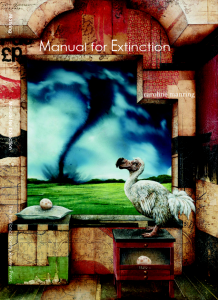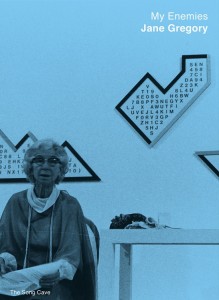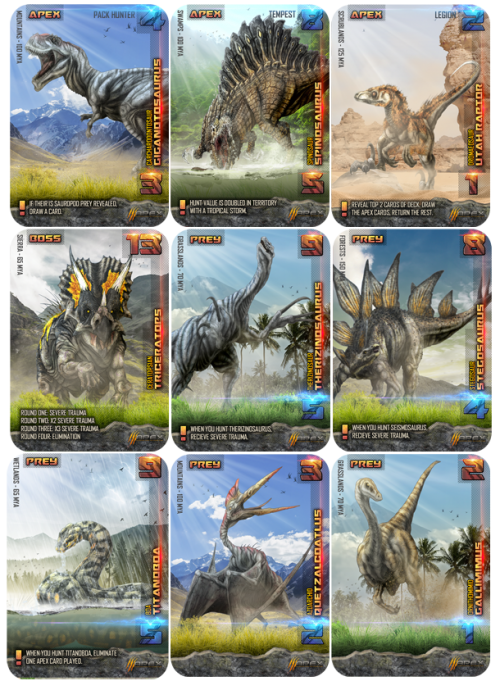Brohemia (2014)
Williamsburg is a place that memorializes masculinity while at the same time re-coding it. In the ‘olden times,’ man worked in a factory, provided for a family, controlled everything in a calm and fairly inarticulate manner. This sometimes worked. So I’ve read.
More often, the industrial society led by men descended into war, violence, chaos.
In 2006-2014 Williamsburg there is a bar called “Bar-cade” that is about a late 20c nerd’s revenge on the New York Nightlife. It’s post-industrial. It’s information society.
Catalog of ri¢h poets: Jess Dutschmann
We’re flossy.
We’re the first poets to scream that we’re hot. We got our face tattooed on their arms. That’s right, we brought all the weird lit to the scene, and that’s right we’re the cats that’s getting the cream.
And it sucks because we want almond milk. Al-mond mi-ilk. Just because we are obtusely wealthy with our words and our pauses and our golden bars and other cliches doesn’t mean we don’t have standards.
Whatever. My thoughts are too expensive for you, anyway.
Another week brings another installment of our ri¢h poets series. Please throw your loose pocket change in the air and welcome Jess Dutschmann.

When Possible
The snake in the road was dead.
When you picked it up it shook
its body shook like dance recitals.
It still and then calm and the also
having breathing. Imagine snake
lungs. In and out thumbnails.
There was a wrong snake. Green
and maybe teeth but not angry.
You picked it up it shook alive.
You killed the snake with your
hands and every day the snake
going killing again. You it killed.
Blood can coagulate did you know
but not this little guy. Just a vine
maybe teeth but not hungry dead.
This poem is about snakes. Snakes, as anyone alive is aware of, are made entirely out of cash money. This poem is about not knowing too much about snakes, which are, as anyone alive is aware of, made entirely out of calcium and borax. This poem is about snakes. Snakes, as everyone knows, are already dead. This poem is about snakes, which the cast of The View drinks for every meal in a steaming hot smoothie, each little elongated hexagon scale flitting through the vitamix, catching light like eyelashes on cheeks.
Jess Dutschmann lives in the castle of every vanquished Disney villain. She bought them on the cheap after the usual fire-pit scene. She is made out of thousands of dollars of medical bills. She prays to sixteen gods nobody has heard of and they rain down golden coins until she blinks upward, both eyes bruised to hell, and grins bloodteeth. SheoOOOOoOOOOOOoooOOOOOOOOO
In Theory, This Could Be Fun
Airport living from 5/14 thru 5/16 in celebration/mourning of the publication of my latest book, “The Fun We’ve Had.”
Any advice on keeping off of security’s radar? Anyone want a shout-out when I get really fucking bored? Anyone want to Skype while I’m leeching off the airport’s Wi-Fi?
Maybe I’ll just watch that Tom Hanks movie and do exactly what he did. Could be good.
Here’s the blog post I wrote about this, whatever this is:
In a big way, being in an airport is a lot like being lost at sea. So many places and possibilities to drift, but not if you don’t already know where it is that you’re going.
I don’t know where I’m going. That’s why I’m not going anywhere.
I’ll be living in an airport for 48hrs.
Beginning 10AM on Wednesday May 14th through Friday May 16th around 10AM: Going nowhere and probably getting into some shit. There’s a good chance I will no longer be human by the end of it. There’s a pretty damn good chance that I’ve never been human. Not to worry, I’ll be online and active during the entire thing.
Odds are you’ll hear from me, be it a tweet, a post on Facebook, or a photo/video on Instagram. I’ll be calling out to everyone while I’m stranded in a state of flux. I’ll also have one of my best writer friends around, Kyle Muntz, hanging around, surviving this ridiculousness with me.
Yes I’m serious. Look how serious I am:
Will it be fun? I hope so. If not, I’ll be at the airport bar.
\m/ \m/
Catalog of ri¢h poets: Elizabeth Foster
Poets make that guap, right? Easy money. At least that’s what my nine to five office co-workers keep telling me.
It’s easy being poor, it’s much harder to be a ri¢h poet. People who are not poets have no idea how real the struggle is. Major label publishers, celebrities, Jay-Z– everyone wants a piece of the lyrical genius. It can be super overwhelming. Don’t even get me ranting about all those diamonds that get thrown at us on our way to the subway for the evening commute. Yowch! Thankfully, those precious stones can be ground up and sprinkled on cat litter to make that shit shine.
Today starts the first in a series profiling real life rich poets so that you get to know them, understand their pain. Please enjoy this poem by Elizabeth Foster and recognize that it’s hard out here for a ri¢h poet.
Some Poems…
 Russian Novels
Russian Novels
by Luke Bloomfield
Factory Hollow Press, 2014
Unlike the archetypal Russian Novel, Luke Bloomfield’s Russian Novels is little more than a centimeter or so thick, 60-some pages of poems with names like “The Duffel Bag” and “Fisticuffs.” Most of the poetry inside the book feels as flat as the book, a sort of day-old-seltzer meets #normcore poetics. The first poem, for example, begins “When I go 2 Paris / it is like Paris,” and goes on to blanket classically French France in stereotypical American stereotype: “Voila, Paris France! / All the cigarettes everywhere / are pronounced cigarette.” In this trick, Bloomfield spells cigarette cigarette and, abracadabra, we the audience mind-mold the word like Play-Doh. The point seems to be that language is as wild and plastic as a “bird” that appears, disappears, and reappears throughout Russian Novels, always cast as simply “bird”—and yet each of these birds, conjured in Bloomfield’s magic, manages to manifest a somewhat unique form. The limitation of such simple syntax is clear however, when, in certain poems like “The Affair I Had With Sweden,” the author tries to reveal some semi-complicated personal gunk: “It sent me over the edge. / I don’t leave the kitchen ever. / All day I hack food into Swedish shapes. / And you know what else I do.” I don’t know, do you? What are we supposed to know? I know Russian Novels is not a novel; the MARC code on the back of the book says Poetry and the Very Poetic Word “flotsam” appears in the title of a poem on page 47. I know that the cover of Russian Novels presents a blurry photograph of a nose, but I don’t know whether or not this is Bloomfield’s schnoz? And I just don’t know what Bloomfield thinks he knows that I know.
Flat affect tends to belie emotional content, and in lines like “Pity me. I have nowhere to walk,” Bloomfield has incanted a dissociative poetics reminiscent of Nintendo sidescroller. The action is pretty fun but Russian Novels, like video games, lacks a third dimension. The book’s tender moment of intimacy (MOI), imo, comes in the author’s dedication, “for my sister.” A close second: Bloomfield’s confession that he sleeps in astronaut-themed bed-sheets.
***
 Manual for Extinction
Manual for Extinction
by Caroline Manring
The National Poetry Review Press, 2014
The earth in Manual for Extinction is a dour place where to be “alive was as good as dead.” The manual doubles as a field guide for understanding this wilderness-less mess, a contemporary big-boxed landscape that, lucky for us, Caroline Manring has surveyed with her poetic binoculars. Fans of “flotsam” will be pleased to find the word has survived End Times (hi flotsam!) and can be found in this book alongside lots of titles that start with the word how, as in “How to Go Extinct” and “How to Write a Debut Novel.” There are a few outliers, such as “The Cartographer’s Children Go Without Shoes,” an evolutionary meditation that invokes the proto-winged avian-ancestor, Archaeopteryx, in which “A fossil is deciding / whether to save us.” Manring demonstrates a cool familiarity with Biology while at the same time grappling with the paradox that Borges called exactitude in science. “A copy of a wolf & the wolf itself / are the same if you draw them both.”
A world of illustrated (aka dead) dodo birds, lost turkeys, and dilapidated human remains sounds shitty and scary but it is also quite literally what we’ve got. In place of live starlings and spring robins we might increasingly encounter the complexity of nature only in the complexity of research finding that predict diminishing populations of red-winged blackbirds, ruby-throated hummingbirds, and buffleheads alike. Manring writes in sympathy with these vanishing species, “I want less & less to be in present use.” Would that we were all to follow such a guide.
***
 My Enemies
My Enemies
by Jane Gregory
The Song Cave, 2013
We’ve a lot to learn from My Enemies. As the title suggests, many things are often as much what they are as what they are not. Take, for example, Jane Gregory’s sonic yin and yang, “Cymbals / when washed up or out to sea are silent.” Much like the potential for both mute and crash held in tempered bell bronze, Gregory has set temporality in opposition to intuition, and by that I mean . . . listen to her ring like an animated slomotion gif of a Zildjian: “I recognize the tongue of the wolf / before it is in the wolf’s mouth.”
Wallace Stevens sez “Poems must resist the intelligence / almost successfully,” and My Enemies outmaneuvers the brain’s insistent cognition, which just cannot compute Jane Gregory. The many poems entitled “Book I Will Not Write” are, as announced, books never really written. But in the poetic summation of these non-books, the author has penned a must read.
Though unable to locate a single instance of “flotsam” inside this text, I found plenty of poetic words like “guncotton,” “ecdysis,” and “Proust.”
***
Peter Nowogrodzki lives in Hudson, NY
April 11th, 2014 / 10:00 am
Providence is scary but at least there is a library
Dylan Little, Manager at the Providence Community Library, is clearly lying to us.
Eight Imaginary Writer Residencies

Many writers are excited to sit on a train, shit in a moving closet, and eat microwavable food. I can understand the appeal of having quiet-time for consecutive days, looking through a window at a flashing landscape. We want to escape our daily physical space so badly, but also remain in a chair, so the Amtrak residency seems ideal for many. Here are eight other writer residencies if you’re not down with Amtrak but are looking for something different:
Who’s Playing Doctor to the Physicians of the Soul?
“Poets are the physicians of the soul.”—Irving Layton, Canadian Nobel nominee for literature.
“She wouldn’t react that way to rape—you bet your life she wouldn’t. Along with the rest of her sex she’d lie back and enjoy it”—Irving Layton in private correspondence. Wild Gooseberries: The Selected Letters of Irving Layton (Toronto: Macmillan, 1989), 53.
***

Canadian Lit likes to think it’s known for being boring, or multicultural, or for surviving in the wilderness. It is hardly known at all, besides by a certain charming Scandinavian institute for Canadian Studies, and those non-Canucks who do know it exists prefer not to think about it. We have heard dull battle cries from other bookish people: “Can Lit isn’t literature”; “Or you could read an actual book” & “Don’t waste your time with that shit”. The Stephen Leacocks, Michael Ondaatjes, Margaret Atwoods, Alice Munros, Anne Carsons, Robertston Davies and Irving Laytons be damned; there’s nothing particularly Canadian about them, they just live north of the 49th. I don’t care to address those suckers of canonization’s long, evil phallus. “Tell us what to read!” they say. “Tell us what set of pseudo-conflicting opinions to harbor,” they murmur through their facile, troubled dreams of greatness. This letter is also not to the children of Canlit, those ‘iconoclasts’ who treat famous poets like demigods, and who worship in a side-chapel of the same institution of thinly-veiled brain-death. Keep your precious feelings, everybody, but leave discussions of taste to snobs who read.
Herschel Hoffmeyer, Dinosaur Enthusiast
 “I’ve been learning about and drawing dinosaurs since I was a kid,” explains Herschel Hoffmeyer, creator of the Apex Theropod Deck-Building Game, now on Kickstarter. “I even won a dinosaur art contest at a local library when I was very little. I was made to create these guys and bring them to life.”
“I’ve been learning about and drawing dinosaurs since I was a kid,” explains Herschel Hoffmeyer, creator of the Apex Theropod Deck-Building Game, now on Kickstarter. “I even won a dinosaur art contest at a local library when I was very little. I was made to create these guys and bring them to life.”
Apex Theropod looks like a dinosaur-lover’s nocturnal emission…and Herschel himself might be the biggest dino-enthusiast you’ll ever meet. “I have National Geographic’s The Ultimate Dinopedia and the super-sized book Dinosaurs by David James. I really love what the indie company Lukewarm Media has done with their game Primal Carnage,” he gushes, adding as an afterthought that he hasn’t actually been able to play said game yet.
According to his Kickstarter bio, Herschel is an 8-year Army veteran and Game Art and Design student at the Arts Institute International in Kansas City. Intrigued about how his Army life segued into his current saurian pursuits, I contacted Herschel for an interview. “Apex started as a simple prototype dinosaur-themed game used for an assignment in one of my game design classes at the Arts Institute International of Kansas City,” he explained. “After seeing my game concepts compared to others, I knew I had a knack for game design. Shortly after, I worked on many different prototype games under the same dinosaur theme, game goals, and playable class ideas.”
“The dinosaur theme was definitely the theme from the beginning, just because I thought it would be really fun to play.” As for the mechanics, they were inspired by the Legendary: A Marvel Deck-Building Game, published by Upper Deck Entertainment. Like other deck-building games, Legendary starts each player with a small deck of relatively weak cards (in this case, S.H.I.E.L.D. agents). However, over the course of the game, they can use these cards to “recruit” more powerful, iconic Marvel heroes into their deck, and the winner will be the player who builds the cleverest deck in the shortest time. This evolution from humble beginnings is a potently addictive formula, which explains the explosion of popularity deck-builders have experienced since they were popularized by Donald X. Vaccarino’s Dominion in 2008. Herschel isn’t naive to the economics of the situation: one reason he selected the deck-building format is that, since the bulk of their contents are composed of duplicate cards, deck-builders are relatively inexpensive to manufacture.
 This evolutionary gameplay is also the perfect complement to the theme of becoming the world’s top saurian predator. Herschel explains, “Most of the game’s mechanics are shaped around the theme, and three are really unique to the game. The first is the territory-based decks. With the environmental deck affecting those territories, that drives a sense of environment immersion. The second is that each player has a nest. The nest is separate from your playing deck and unique to whatever dinosaur you’re playing as. In the nest, you hatch cards that consist of just your dinosaur, and you also bring any prey hunted back to your nest to eat later. The third unique mechanic is the unforgiving boss battles. To dominate each territory, you have to fight off the other competing apex predator of that territory, and that is the boss. In a 5-player game, you have eight total bosses, and in a single-player game, you have three bosses and one ultimate boss.”
This evolutionary gameplay is also the perfect complement to the theme of becoming the world’s top saurian predator. Herschel explains, “Most of the game’s mechanics are shaped around the theme, and three are really unique to the game. The first is the territory-based decks. With the environmental deck affecting those territories, that drives a sense of environment immersion. The second is that each player has a nest. The nest is separate from your playing deck and unique to whatever dinosaur you’re playing as. In the nest, you hatch cards that consist of just your dinosaur, and you also bring any prey hunted back to your nest to eat later. The third unique mechanic is the unforgiving boss battles. To dominate each territory, you have to fight off the other competing apex predator of that territory, and that is the boss. In a 5-player game, you have eight total bosses, and in a single-player game, you have three bosses and one ultimate boss.”
I Am Heavy Bored

It’s amazing how many times I’ve received this email, usually from a sane, diligent, intelligent and widely-published poet. Have your received it too? Have you done it?
I’m totes pro this sort of thing, cuz, whatever, it’s sweethearted and anyway I’m against more important things like reality TV, but when I first received it (from Mike Young—I told him it was going down on his permanent record), I thought for a minute about what poem I would send.
Then I realized if I did this, I could potentially receive a poem from ~20 people.
Who started this?
Some friends started a collective, constructive, and hopefully uplifting exchange, a form of email art exchange. It’s a one-time thing and we hope you will participate. We have picked those we think would be faithful, and make it fun. Please take just a few minutes to send an encouraging quote or verse to the person whose name is in position 1 below (even if you don’t know him or her). It should be a favorite text verse/poem/meditation/recipe that has lifted you when you were experiencing challenging times. Don’t agonize over it–it is one you reach for when you need it or the one that you always turn to.
1)
2)After you’ve sent the short poem/verse/meditation/quote/etc. to the person in position 1, and only that person, copy this letter into a new email, move my name to position 1. and put your name in position 2. Only my name and your name should show when you email. Send to ~20 friends BCC (blind copy). If you cannot do this in five days, let us know so it will be fair to those participating. It’s fun to see where they come from. Seldom does anyone drop out because we all need new ideas and inspiration. The turnaround is fast, as there are only two names on the list, and you only have to do it once.


